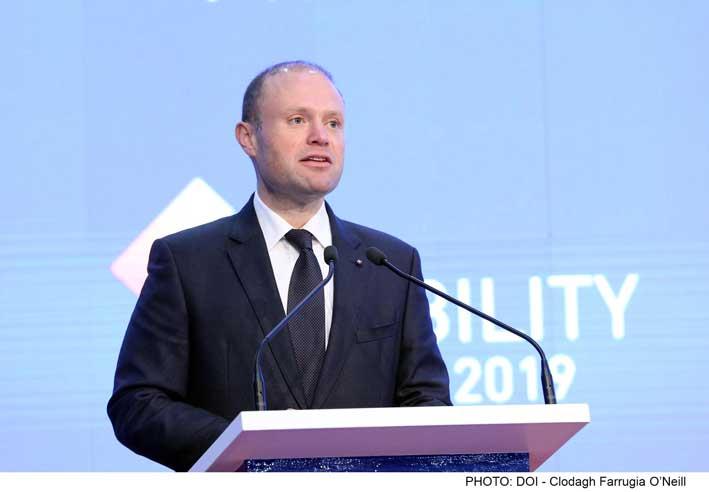Malta and its citizens are slowly embracing clean mobility technology despite an early resistance to vehicles that make use of low and zero emission technology, Labour MEP Miriam Dalli said.
“It is heartening to see people who until just a few months ago were resistant to such technologies are already willing to invest their money in new Zero and Low Emission Vehicles in Malta,” Miriam Dalli said. “It is this change that we require.”
Dalli was addressing the first international e-mobility summit being held on the island, bringing together key international industry players, electric vehicle manufacturers, suppliers and citizens together.
The Maltese MEP, who was instrumental in securing a consensus across the EU to introduce stricter emissions standards in the EU by 2030, insisted that this change could not happen on its own.
“Member States should decide what kind of country they want in the next 10 to 15 years and ensure that they have the policies that can deliver that transition.Policies need to move this shift and we as policy-makers need to encourage and stimulate this move,” she said.
Dalli said that climate change necessitated a shift from traditional economic models to ones that are rooted in sustainability, allowing technology, innovation, research and development to take centre stage.
“It is about revolutionising our current industrial policy. It is about the Fourth Industrial Revolution. However, digitisation and automation of future production systems should be coupled with the ecological aspect.”
Dalli explained that this will be the time for smart mobility with car sharing, charging infrastructures, smart city planning, automation, smart sensing and autonomous vehicles amongst others.
“A successful transition to zero- and low-emission mobility, requires a coherent policy framework that covers vehicles, infrastructures – including alternative fuels infrastructure, electricity grids, employment and economic incentives at EU, national and local levels,” she said.

Addressing the event, Prime Minister Joseph Muscat said Malta has been experiencing unprecedented economic growth for the past six years.
Like any other modern strong economy, we are facing challenges that stem from progress. We see these challenges as opportunities. Malta is in a position to look to the future more than ever. We can set ambitious goals. We are building on our economic stability to invest for the long term.
The government’s vision for the coming years is to accelerate plans for the transition towards zero-emission vehicles. “I believe that, after conducting the necessary studies, we can start this ambitious project for a changeover on the island of Gozo, which can be a pilot-project for Malta. All of Malta can in turn become a pilot-study for a European nationwide roll-out of products that the industry has to offer. We are ready to listen to proposals on how we can make the Maltese Islands the first European state running its cars on electricity.”
This policy decision will probably offer a unique testing bed for the industry, and many of you present here, especially service providers. We are willing to engage with all those wanting to join this probably first EU nationwide changeover exercise.
We will not be taking these steps blindly. Before we move decisively down this route we must study the likely effects. After all, this is a country heavily reliant on cars with a large fleet of vehicles that work on fuel.

An E-Cars Commission has been established which is formed by the Environmental Resources Authority which chairs this commission, and also Transport Malta, Malta Resources Authority, the Ministry for Environment and the Ministry for Energy.
This Commission has been tasked to establish a cut-off date for the importation and registration of conventional fuel vehicles, Muscat said.
This inter-ministerial commission appointed PricewaterhouseCoopers to carry out a study on financial and social impacts of this eventual changeover. The Committee has also requested a list of options to counteract envisaged limitations or constraints. The report will also analyse emissions-impact with every option which will be presented.
Affordability of e-cars is a key issue that we are studying. Can, or should government impose on a person to buy a new electric car when his old car is still functioning, particularly in the context of the prices of these cars? Can the government restrict a person buying a new vehicle, to buy an electric car which is more expensive? These are question which need and will be addressed.
There are other issues that are being analysed such as the need for further incentives to be offered to persons owing personal e-cars and charging them in their own personal garages. I believe that those persons who decide to switch to electric cars should be able to charge their cars at home at acceptable domestic levels. As things stand, those charging their cars at home end up paying a high price for the electricity used. We are currently in discussions with Enemalta, the country’s main energy provider, to come out with pilot programmes for specific tariffs, Muscat said.